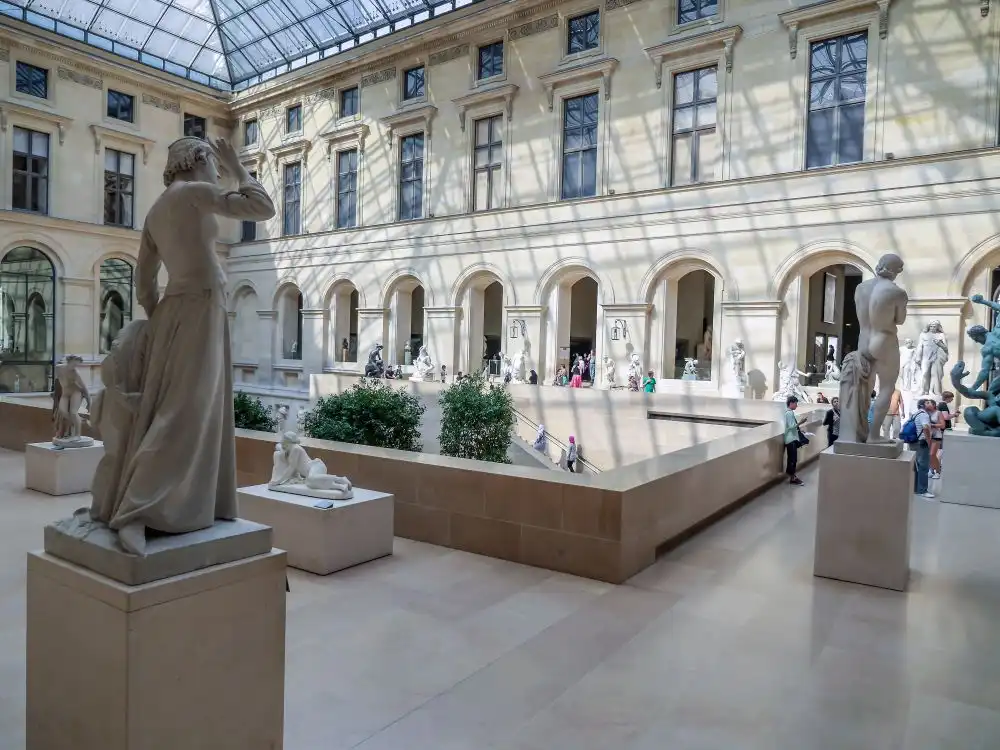
Home>Careers>Careers actions and opportunities>Career opportunities in the Arts & Culture sector with a master's degree
Career opportunities in the Arts & Culture sector with a master's degree

The Cultural Policy and Management policy stream of the Sciences Po School of Public Affairs Master’s programmes is designed to equip students for careers in arts and culture, in the public, private or non-profit sectors, and at the local, European and international levels.
Skills acquired in the cultural policy and management policy stream at Sciences Po
The Cultural Policy and Management programme offered by the Sciences Po School of Public Affairs enables students to develop the following professional skills:
- understand and define the specificities of the cultural field and the different sectors within it (e.g., the cultural industries, the art market, artistic creation, cultural heritage, and the performing arts);
- management of cultural institutions and cultural projects;
- understand the issues of cultural cooperation;
- understand the challenges currently facing the arts and culture world from a political, economic and legislative point of view, and be capable of proposing innovative solutions;
- lead a project (design, steering, team coordination, implementation, management, evaluation, dissemination and promotion) that can leverage multidisciplinary skills in a collaborative framework;
- understand and develop a budget;
- conduct a reflective, objective analysis, taking into account the issues, problems and complexity of a request or situation so as to propose appropriate and/or innovative solutions in line with regulatory developments.
Find out more about the Cultural Policy and Management policy stream.
Professional fields in the cultural sector
On completion of the Cultural Policy and Management policy stream, the knowledge and skills acquired open up career opportunities in various fields:
- Cultural policy management and reform, at the local, national or European level;
- Management of cultural institutions;
- Cultural industries (cinema, audiovisual sector, music, publishing, media);
- The art market;
- Performing arts (cultural institutions or events);
- Cultural heritage, museums;
- Cultural cooperation;
- Cultural diplomacy;
- Cultural project management.
Jobs and careers professions after a master in cultural policy and management
Specialising in Cultural Policy and Management allows you to work in a wide range of professional environments, in the public, private or non-profit sectors: Ministry of Culture, Ministry of European and Foreign Affairs, local authorities, Alliances Françaises, French institutes, cultural institutions, museums, theatres, national arts institutes, arts and culture companies, non-profit organisations, NGOs, arts foundations, corporate foundations, consultancies, etc.
It opens the door to a variety of professions to pursue a career in culture-related fields:
- Director of a cultural institution;
- Art director in publishing;
- Administrator of a cultural institution;
- Festival or company administrator;
- Producer;
- Programming officer;
- Communications officer;
- Marketing officer;
- Sponsorship officer;
- Cultural or audiovisual project manager;
- Public Relations officer;
- Brand manager;
- Project manager, production manager;
- Cooperation officer;
- Consultant.
Testimonials
Marie Gervier, Class of 2018 and Communication and Event Manager at the United Nations
"The School of Public Affairs gave me the opportunity to study creative industries, property law, cultural and art economics but also fundraising and marketing in the cultural sector. These courses were also very enriching because the School of Public Affairs’ teachers are experts in their field."
Examples of institutions and companies in the cultural sector
Many of our Cultural Policy and Management graduates go on to take up senior roles in companies, institutions, foundations and non-profit organisations in the cultural sector.
Here are some examples of organisations that may be of interest to Cultural Policy and Management students.
- Ministry of Culture: central administration, regional cultural affairs directorates, public institutions (Centre des monuments nationaux, Centre national d'art et de culture Georges Pompidou, Centre national du cinéma et de l'image animée, Centre national du Livre, Cité de la Mode et du Design, Château, musée et du domaine national de Versailles, Comédie-Française, Conservatoire national supérieur de Musique et de Danse de Paris, Musée du Louvre, Musées d’Orsay et de l’Orangerie, Musée du quai Branly, Opéra national de Paris, etc.);
- Ministry of European and Foreign Affairs: network of French cultural centres abroad and Alliances françaises;
- Local authorities and intermunicipal bodies;
- Cultural institutions around the world: museums, regional theatres, municipal theatres, choreographic centres, cinemas, music and dance schools;
- Foundations (Fondation Louis Vuitton; Fondation Art Explora, etc.) and corporate foundations (Fondation Lafayette Anticipations; Fondation d’entreprise Hermès, etc.);
- Cultural events: festivals, cultural seasons;
- Cultural industries: record companies, labels, film and audiovisual companies (producer, distributor, etc.);
- Publishing industry;
- Private companies outside the cultural field (banks, real estate groups, etc.) that promote arts and culture.
Open house days 2025

Virtual Undergraduate Open House day 2025
Come meet our teams and students at our campuses.
Virtual Graduate Open House day 2025
Meet faculty members, students and representatives and learn more about our 30 Master's programmes.
Key Figures
+2200
students
11
Policy streams
15
international dual degrees
17%
international students
11%
bi-national students
236
students in apprenticeship track
434
students enrolled in the Preparation Center for French and European civil servants competitive exams